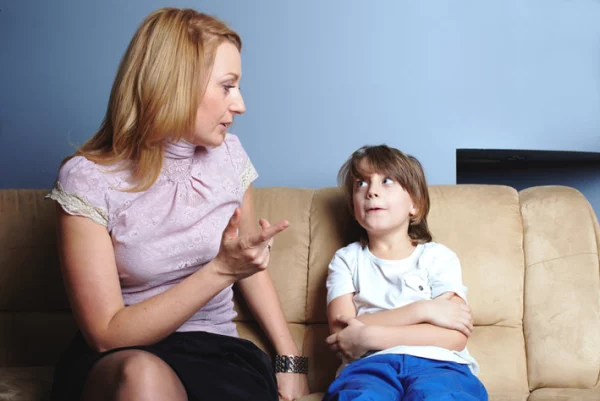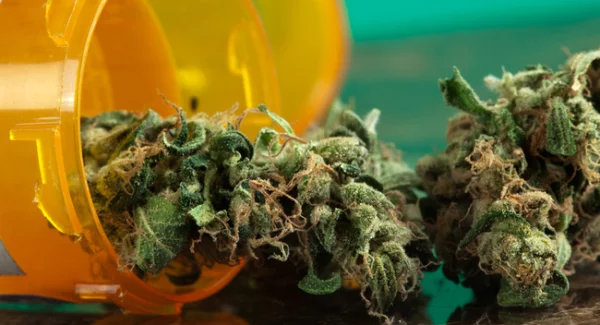Talking to your child about drugs is not an easy task, but it is crucial in helping them understand and protect themselves from societal dangers. Children, especially those aged 5-10, often lack a clear concept of drugs and addictive substances, so your approach must align with their age and cognitive abilities. Research from the American Psychological Association (APA) in 2021 revealed that early education on proper values could reduce the risk of exposure to addictive substances during adolescence by up to 40%.
At a young age, children may not know specific terms like drugs, heroin, or cocaine. Instead, conversations should focus on educating them about overall health and ways to protect their bodies. “What children learn from their parents during this phase will guide them in handling peer pressure later,” emphasizes Paul Coleman, a family therapist. Rather than scaring or lecturing them, you can explain in simple terms like: “There are substances that harm our bodies, just like eating too much candy can hurt your teeth and make you feel tired.”
To enhance their ability to protect themselves, children need skills to make good decisions and say “no” when necessary. Encourage them to express their opinions and always listen to them respectfully. This not only helps build their confidence but also fosters a strong bond between you and your child.

In addition, imparting life values is equally important. If you are unclear about your own values, your child may form opinions based on peers or media. Show them that you value health and self-discipline, for example, by saying: “I really enjoy sweets, but I don’t eat too much because it’s not good for my body.” Children learn more from their parents’ actions than their words, so set a good example in every situation.
“Praising and recognizing children’s small efforts help them develop self-esteem and reduce the risk of being influenced by negative factors.” — World Health Organization (WHO), 2020 report
An equally important factor is building your child’s self-confidence and sense of being loved. Children are more vulnerable to drugs if they feel neglected or undervalued. You can praise them for completing tasks or helping others, while emphasizing that you love them unconditionally.

Discussing drugs does not have to happen all at once. Take advantage of daily opportunities to weave in educational messages, such as when your child asks questions about health or diet. Continuous and positive conversations lay a solid foundation, helping children understand the risks and learn to protect themselves from the dangers of drugs in the future.


HPX24h > Parenting Tips > How to Talk to Your Child About Drugs Effectively
Top Reads from This Category
Parenting Tips
How to Talk to Children About Poverty and Homelessness (Ages 5-8)
Parenting Tips
How to Talk to Your Child About Divorce: Helpful Tips for Parents
Parenting Tips
Why Your Child Might Be Coughing Disruptively During Sleep?
Parenting Tips
How to Talk to Children About Alcohol (Ages 6-8)
Parenting Tips
Talking To Children About Sexuality: How To Make It Easier?
Parenting Tips
Sleep Apnea in Preschoolers: Understanding It to Protect Your Child’s Health
Parenting Tips
How to Prevent a 2-Year-Old from Throwing Things?
Discover New Topics
Fitness
Muscle Strain During Exercise: Effective Prevention and Recovery Tips
Fitness
Cardiovascular Endurance: The Key to Optimizing Overall Health
Space
The Two Largest Black Holes Ever Discovered
Healthy Eating
MIND Diet – The Secret to Protecting the Brain and Preventing Cognitive Decline
Fitness
Muscles: The Golden Key to Effective Health and Performance
Science
Recreating the Mouse Brain in a Virtual World: The Future of Neuroscience
Science
New Hope from Cyborg Spinal Implant Technology for Paralyzed Patients
Science
Work 3.5 Days a Week and Live to 100: This Could Be Your Future
Space
The Smallest Star System with Three Exoplanets Found by NASA’s Kepler
Fitness
Why Do You Get Headaches After Exercise? Causes, Remedies, and Effective Prevention
Fitness
Physical Training: The Key to Preventing Nerve Damage During Chemotherapy
Fitness
Mesomorph: The Key to Unlocking Your Body’s Natural Strengths
Parenting Tips
Causes and Solutions for Aggressive and Strong-Willed Behavior in Children